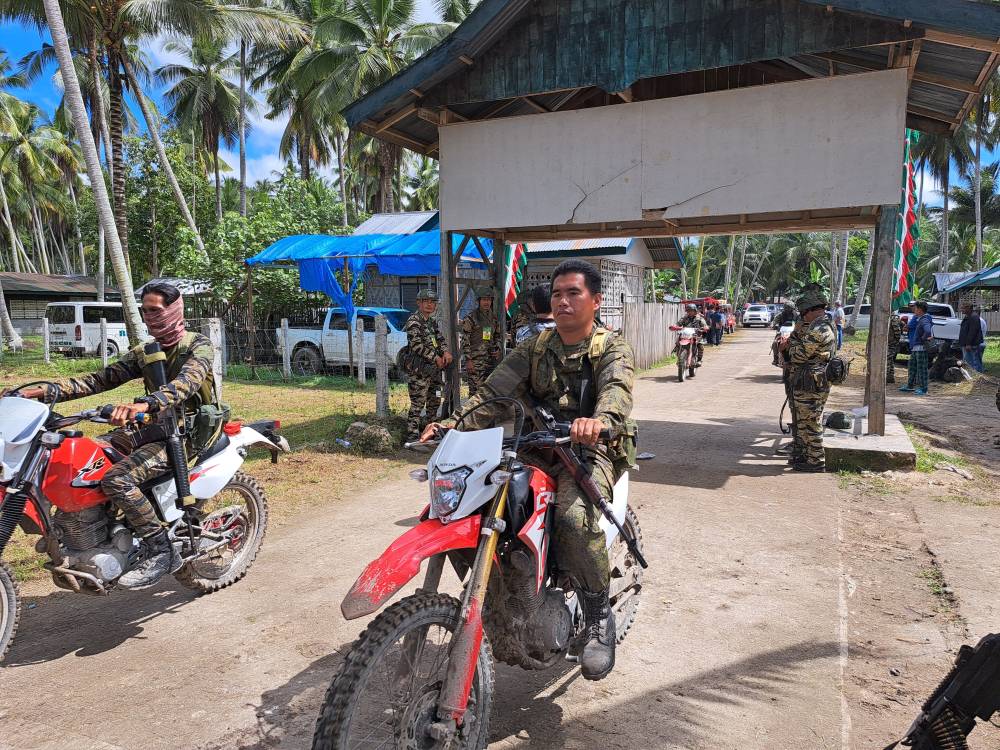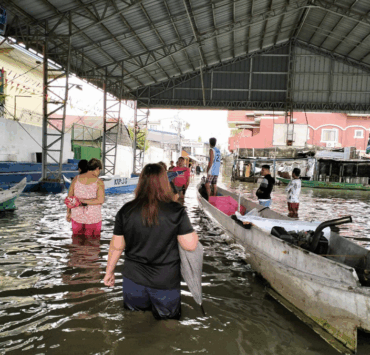MILF suspends deactivation of remaining 14,000 combatants

The Moro Islamic Liberation Front (MILF) will not deactivate its remaining 14,000 combatants until the government substantially complies with the provisions of the Annex on Normalization in the peace agreement the two parties signed in 2014.
The decision, which was only made public on Saturday, was reached by the MILF’s central committee during its regular meeting at Camp Darapanan, Sultan Kudarat in Maguindanao del Norte on July 19.
At the same time, 2,450 weapons would also not be decommissioned until the national government has complied with tracks for normalization, including the provision of socioeconomic package for the MILF’s 26,145 combatants, said the resolution, signed by MILF chair Al Haj Murad Ebrahim and secretary Muhammad Ameen.
Ebrahim said there should be some showing of substantial compliance of the socioeconomic interventions for combatants profiled for decommissioning before other combatants were even made to undergo the initial steps towards decommissioning.
As of 10 a.m. on Sunday, the Office of the Presidential Adviser on the Peace, Unity and Reconciliation, headed by Secretary Carlito Galvez Jr., has yet to comment on the decision of the MILF.
‘Not a single one’
Datuan Magon Jr., spokesperson for the MILF peace implementing panel, noted that the promised socioeconomic package still to reach the decommissioned fighters despite having given up their firearms.
So far, 26,145 MILF combatants had been decommissioned, or 65 percent of the 40,000-strong MILF forces. But the MILF Central Committee lamented that of the 26,145 decommissioned MILF members, “not a single one has successfully undergone ‘transition to productive civilian life,’ as other interventions for decommissioning have essentially not been provided, save for the P100,000 per combatant.”
The Annex on Normalization is an integral part of the Framework Agreement on the Bangsamoro (FAB). The FAB, among others, constitutes the Comprehensive Agreement on the Bangsamoro, the final peace agreement signed by the Philippine government and the MILF in 2014 after 17 years of negotiations.
The other tracks in the Annex on Normalization include policing, the redeployment of troops and units of the Armed Forces of the Philippines away from the former conflict areas, the disbandment of private armed groups, socioeconomic development, detection and clearance of unexploded ordnances, transitional justice and reconciliation and the confidence-building measures of camps transformation, and amnesty, pardon and other available processes to persons charged with or convicted of crimes connected to the armed conflict in Mindanao.
Guns surrendered
Under the normalization track, the MILF shall undertake a graduated program for the decommissioning of its forces so that they are put beyond use.
In a show of goodwill during the administration of the late President Benigno Aquino III, the MILF deactivated 145 combatants and 75 weapons on June 16, 2015.
The second phase of decommissioning commenced on September 7, 2019 involving 12,000 combatants and 2,100 weapons, during the term of former President Rodrigo Duterte.
The third phase began on Nov. 8, 2021, with the deactivation of 14,000 MILF combatants and 2,450 weapons, also during the Duterte administration.
The Philippine government and the MILF have created the foreign-led Independent Decommissioning Body (IDB) to oversee the process of decommissioning of MILF forces and weapons. The IDB is chaired by Turkiye along with Norway and Brunei, and two representatives each from the Philippine government and the MILF.
Ebrahim assured the decommissioning of the remaining 14,000, or 35 percent of the MILF forces, and 2,450 weapons would proceed once the government substantially complies with the other tracks of normalization, including the socioeconomic provisions agreed in the peace agreement.

















